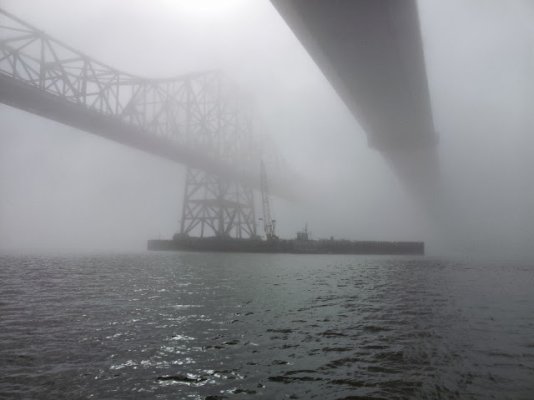- Joined
- Apr 15, 2008
- Messages
- 13,731
- Location
- California Delta
- Vessel Name
- FlyWright
- Vessel Make
- 1977 Marshall Californian 34 LRC
As others have alluded to, it's the operator who makes a radar worthwhile having. If you don't know how to operate it and interpret its display, it won't help much.
All radar experts I know operate with the radar on at all times while underway...regardless of the weather. This goes for aviation as well as marine radar.
Radar has many limitations but when it's understood, it's a much more reliable locator in the fog than a chartplotter that can be off by as much as 100 ft when you really need it. I see it often when passing navigation markers depicted on the map. They're not always where they say they are!
IMO, too many folks put too much blind faith in their chartplotters, seeing them as some magic orb of knowledge that must be followed at all times and 99% of the time, they're right. The other 1% is when radar disagrees with the chartplotter...that's when you need to know how to follow the radar.
I've had a few close calls on the water in bad fog caused by misinterpretation or disbelief of the display. I hope to never make those mistakes again!
All radar experts I know operate with the radar on at all times while underway...regardless of the weather. This goes for aviation as well as marine radar.
Radar has many limitations but when it's understood, it's a much more reliable locator in the fog than a chartplotter that can be off by as much as 100 ft when you really need it. I see it often when passing navigation markers depicted on the map. They're not always where they say they are!
IMO, too many folks put too much blind faith in their chartplotters, seeing them as some magic orb of knowledge that must be followed at all times and 99% of the time, they're right. The other 1% is when radar disagrees with the chartplotter...that's when you need to know how to follow the radar.
I've had a few close calls on the water in bad fog caused by misinterpretation or disbelief of the display. I hope to never make those mistakes again!


